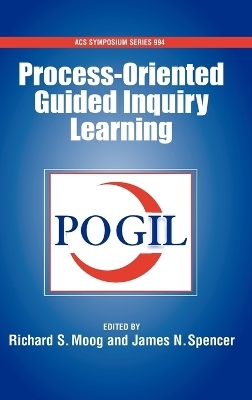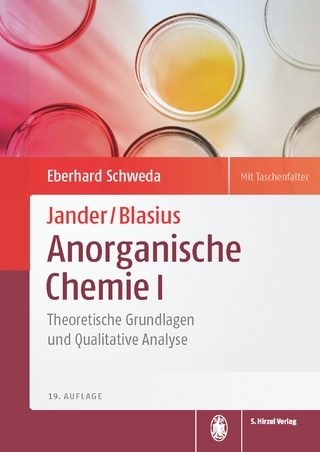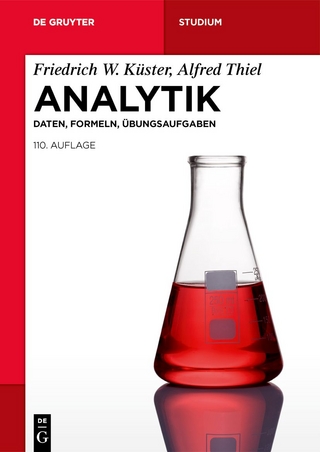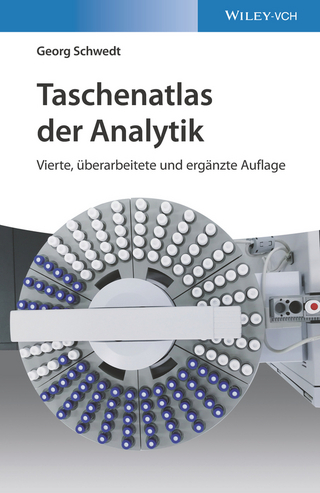
Process Oriented Guided Inquiry Learning Pogil
Oxford University Press Inc (Verlag)
978-0-8412-7423-5 (ISBN)
- Keine Verlagsinformationen verfügbar
- Artikel merken
The volume begins with an overview of POGIL and a discussion of the science education reform context in which it was developed. Next, cognitive models that serve as the basis for POGIL are presented, including Johnstone's Information Processing Model and a novel extension of it.
Adoption, facilitation and implementation of POGIL are addressed next. Faculty who have made the transformation from a traditional approach to a POGIL student-centered approach discuss their motivations and implementation processes. Issues related to implementing POGIL in large classes are discussed and possible solutions are provided. Behaviors of a quality facilitator are presented and steps to create a facilitation plan are outlined.
Succeeding chapters describe how POGIL has been successfully implemented in diverse academic settings, including high school and college classrooms, with both science and non-science majors. The challenges for implementation of POGIL are presented, classroom practice is described, and topic selection is addressed. Successful POGIL instruction can incorporate a variety of instructional techniques. Tablet PC's have been used in a POGIL classroom to allow extensive communication between students
and instructor. In a POGIL laboratory section, students work in groups to carry out experiments rather than merely verifying previously taught principles.
Instructors need to know if students are benefiting from POGIL practices. In the final chapters, assessment of student performance is discussed. The concept of a feedback loop, which can consist of self-analysis, student and peer assessments, and input from other instructors, and its importance in assessment is detailed. Data is provided on POGIL instruction in organic and general chemistry courses at several institutions. POGIL is shown to reduce attrition, improve student learning, and
enhance process skills.
Richard S. Moog is Professor of Chemistry at Franklin & Marshall College. He is the Project Coordinator for the Middle Atlantic Discovery Chemistry Project (MADCP) and is Principal Investigator for the NSF-funded National Dissemination project in Process Oriented Guided Inquiry Learning (POGIL). James N. Spencer is Emeritus Professor of Chemistry at Franklin & Marshall College. He served as chair of the ACS Task Force on the General Chemistry Curriculum, and was a founding member of the Council on Undergraduate Research. He is the 2005 recipient of the Pimentel Award in Chemical Education. Books by the same authors Chemistry: A Guided Inquiry 4th Edition, R. S. Moog and J. J. Farrell; John Wiley & Sons: New York, 2008. Instructor's Manual, Solution Manual and Instructor's Supplemental Materials also available. Chemistry: Structure and Dynamics, 4th Edition , J. N. Spencer, G. M. Bodner, L. H. Rickard; John Wiley & Sons: New York, 2008. Solutions Manual and Test Bank also available. Physical Chemistry: A Guided Inquiry Atoms, Molecules, and Spectroscopy , R. S. Moog, J. N. Spencer, J. J. Farrell; Houghton Mifflin: Boston, 2004. Instructor's Guide and Solutions Manual also available. Physical Chemistry: A Guided Inquiry Thermodynamics , J. N. Spencer, R. S. Moog, J. J. Farrell; Houghton Mifflin: Boston, 2004. Instructor's Guide and Solutions Manual also available.
1. POGIL: An Overview ; 2. A copnitive Model for Learning Chemistry and Solving Problems ; 3. Information Overload, Rote Memory and Recipe Following in Chemistry ; 4. Advice from a Sage who Left the Stage: How to Have a Successful POGIL Journey ; 5. Phasing into POGIL ; 6. POGIL Implementation in Large Classes ; 7. Facilitation: The Role of the Instructor ; 8. What do Students Experience during POGIL Instruction? ; 9. A Theory-based Evaluation of POGIL Workshops ; 10. POGIL in the High School Chemistry Classroom ; 11. POGIL in the General, Organic, and Biological Chemistry Course ; 12. POGIL in Chemistry Courses at a Large Urban University: A Case Study ; 13. POGIL in the Physical Chemistry Classroom ; 14. Enhancing the POGIL Experience with Tablet PC's ; 15. Making Science Accessible in the Lives of Nonscience Majors Using POGIL and Project-Based Learning ; 16. The Process-Oriented Guided Inquiry (Discovery) Laboratory ; 17. Implementing POGIL in a Multiple Section Laboratory Course ; 18. Assessing POGIL Implementations ; 19. A Multi-Institutional Assessment of the Use of POGIL in Organic Chemistry ; 20. Using an ACS General Chemistry Exam to Compare Traditional and POGIL Instruction
| Erscheint lt. Verlag | 29.9.2008 |
|---|---|
| Reihe/Serie | ACS Symposium Series ; 288 |
| Zusatzinfo | 5 halftones, 39 line illustrations |
| Verlagsort | New York |
| Sprache | englisch |
| Maße | 158 x 235 mm |
| Gewicht | 502 g |
| Themenwelt | Naturwissenschaften ► Chemie ► Analytische Chemie |
| Naturwissenschaften ► Chemie ► Anorganische Chemie | |
| ISBN-10 | 0-8412-7423-1 / 0841274231 |
| ISBN-13 | 978-0-8412-7423-5 / 9780841274235 |
| Zustand | Neuware |
| Haben Sie eine Frage zum Produkt? |
aus dem Bereich


